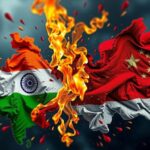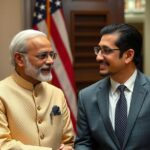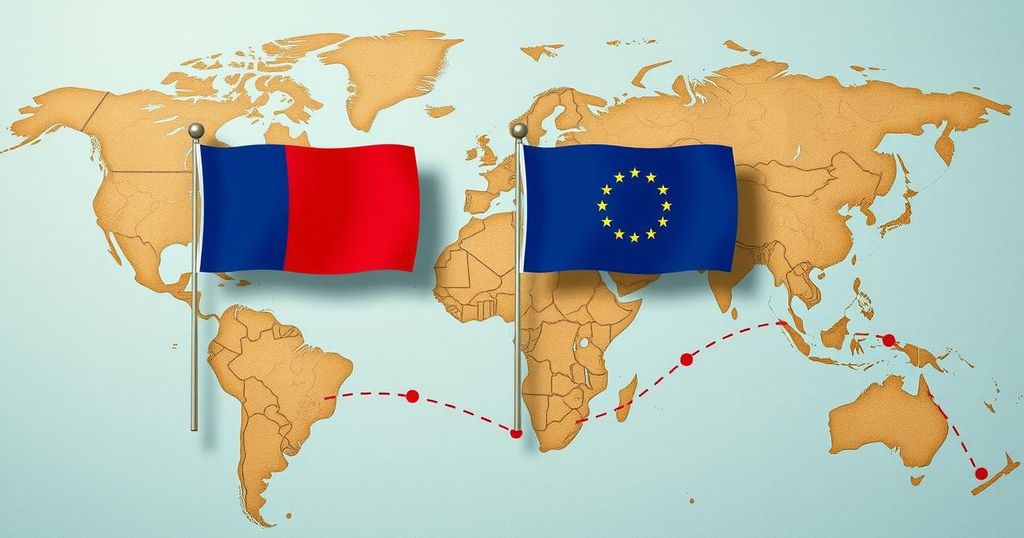Sullivan and Waltz Advocate for Strategic Partnership with India Against China
Jake Sullivan and Michael Waltz concur that China presents a major strategic challenge for the U.S., with India being a vital ally. Their discussion underscored shared plans for a robust U.S. foreign policy, addressing economic dependencies on China and enhancing partnerships with India and other allies. Sullivan and Waltz’s collaborative spirit highlights the urgency in tackling immediate and long-term security concerns amid global tensions.
Jake Sullivan, the outgoing national security advisor to President Joe Biden, and Michael Waltz, the incoming national security advisor under President Donald Trump, agree that China constitutes the most significant strategic challenge for the United States in the long run. Both officials emphasized that India is an essential partner in addressing this challenge. Waltz highlighted his leadership role in the India caucus, indicating the necessity of India’s involvement in the U.S. strategy against China.
During their discussion at the U.S. Institute of Peace, Sullivan humorously remarked about his potential role as chair of the India spouses caucus, while the audience appreciated his playful tone. The conversation underscored a collaborative effort between the outgoing and incoming national security teams to ensure a seamless transition emphasizing vigilance against adversarial actions during this period.
Sullivan articulated a stark focus on China’s long-term strategic threats, reiterating, “We can’t take our eyes off the ball from the long-term strategic competition with China.” He outlined the need for domestic investment, allied cooperation, and counteracting China’s aggressive economic tactics to safeguard American interests in key regions like the South China Sea and Taiwan straits.
Waltz pointed to border security as an immediate concern and underscored the significance of addressing U.S. dependencies on China. He expressed optimism that leveraging the economic ties with China could lead to conflict avoidance. The need for returning supply chains to the U.S. or relocating them to the Western Hemisphere was also emphasized as part of bipartisan policy efforts against Chinese influence.
In further discussions on U.S.-China relations, Ariel Waltz identified key approaches to enhancing security, such as bolstering Taiwan’s defense, strengthening alliances with Japan and South Korea, and maintaining close ties with India. Sullivan amplified this perspective by asserting that a robust strategy towards China is inherently linked to a sound strategy towards Asia and America’s technological competitiveness, while also noting the economic challenges China is experiencing.
Thus, the dialogue between Sullivan and Waltz reflects a shared vision for U.S. foreign policy focusing on a strong partnership with India amidst the strategic rivalry with China, emphasizing cooperation, proactive measures, and long-term investment in both domestic and international fronts.
The discussion between Jake Sullivan and Michael Waltz, both national security advisors across different administrations, highlights a bipartisan consensus on addressing China’s challenge and underscores the importance of India as a crucial partner in U.S. strategic interests. Their dialogue occurred in a context of escalating tensions with China and the necessity for the U.S. to consolidate its alliances and bolster economic resilience against adversarial pressures. With rising concerns over supply chains and economic dependencies, both officials articulated a strategic approach that includes detailed plans for cooperation and investment in both domestic and allied capacities.
In conclusion, the shared perspectives of Jake Sullivan and Michael Waltz emphasize the critical need for a unified approach to counteracting China’s influence through strong alliances, particularly with India. The importance of addressing supply chain vulnerabilities and leveraging economic relationships is underscored. Ultimately, the dialogue illustrates a proactive commitment to safeguarding U.S. interests in an era characterized by strategic competition and changing international dynamics.
Original Source: www.hindustantimes.com







Post Comment